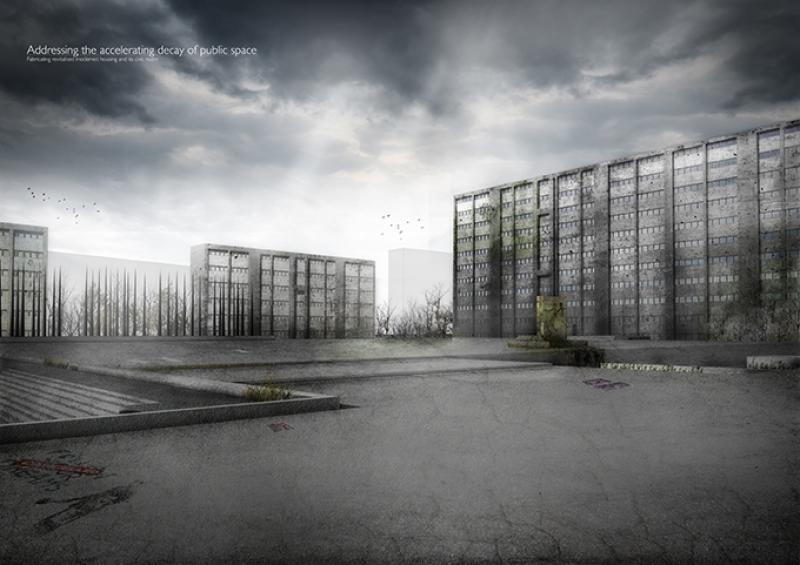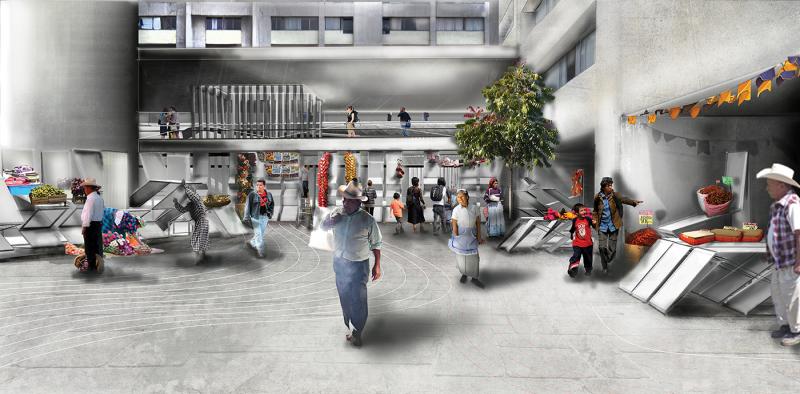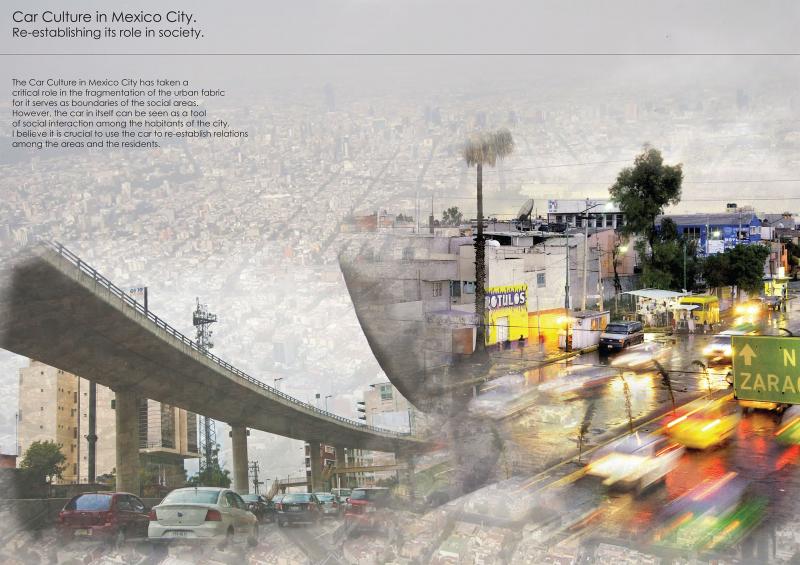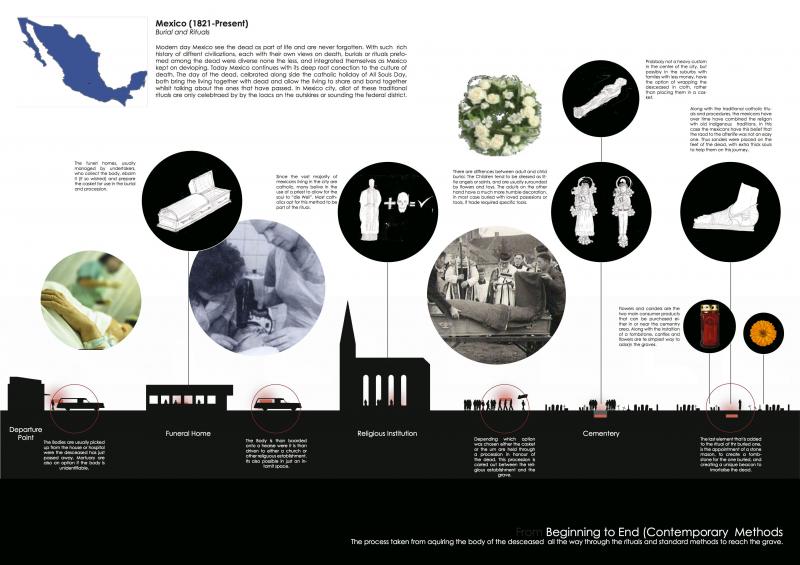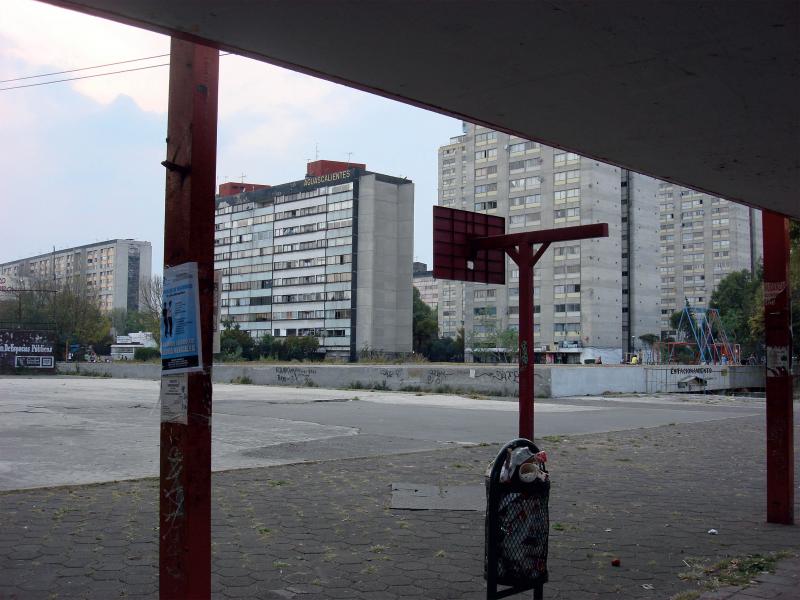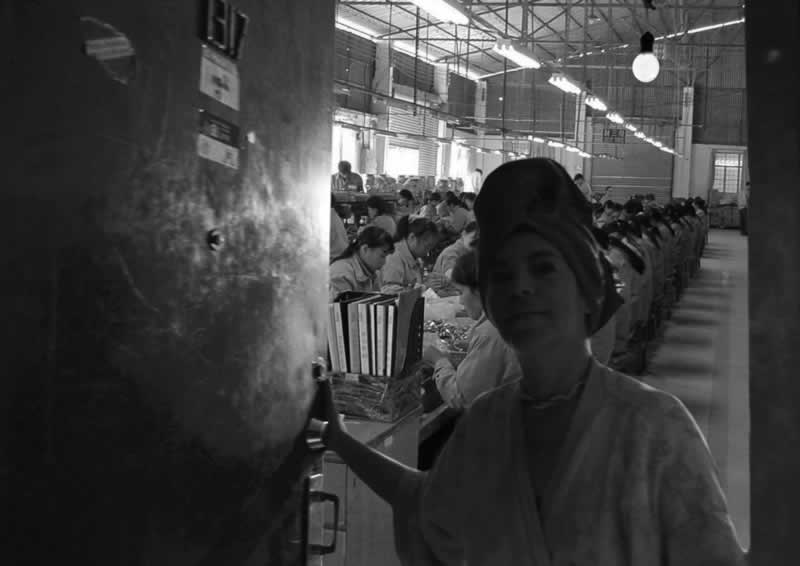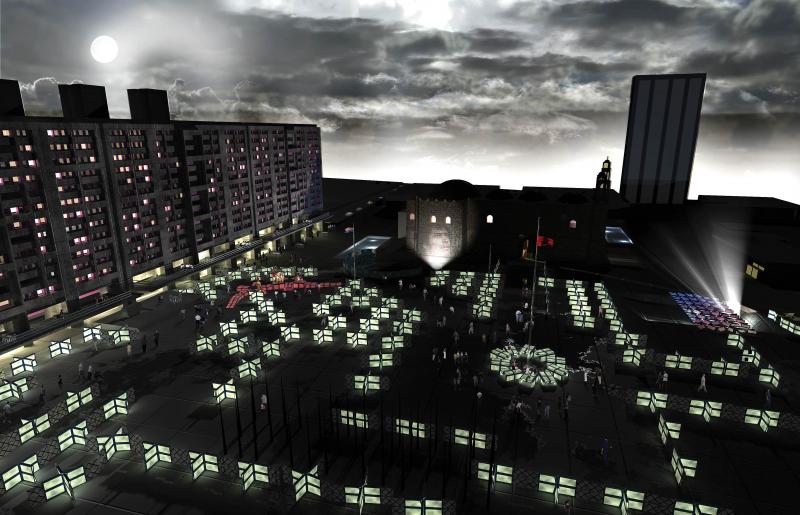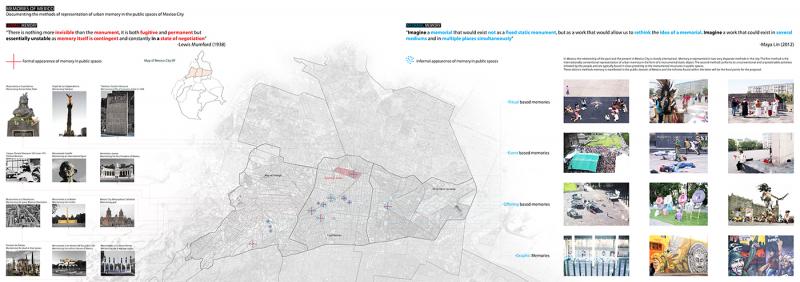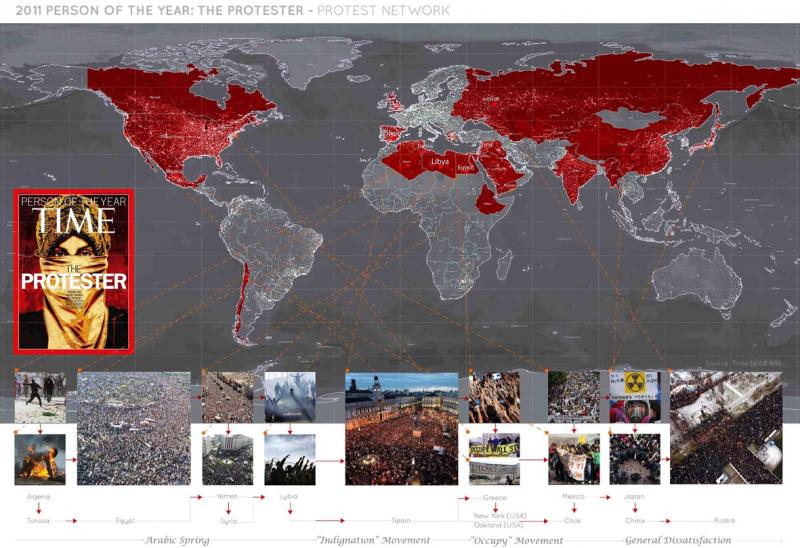Politics of Fabrication III: Framing Political Conflict in the Plaza de las Tres Culturas, Mexico City
Recent demonstrations in public spaces of our cities are confirming a profound crisis of political institutions worldwide. While citizens are claiming a change in national political agendas to place more of the focus on their everyday life concerns and less on global finances, public squares are emerging as places of political discussion. Moved by this current interest, Intermediate Unit 8 have worked on redefining what constitutes a public space today, which is the role of the architect and the agency of the people, and how new fabrication methods might serve as fundamental tools for constructing a city of the people.
This year the work of the unit has been located in Mexico City, a metropolis developed under neoliberal rules for the last two decades. The particular site for the unit work has been the massive modernist housing complex of Tlatelolco, and more specifically, the Plaza de las Tres Culturas. This urban square is well-known not only for the mixed presence of Aztec, Spanish Colonial and modernist constructions, but also for its past political life including the massacre of students’ before the 1968 Olympic Games. Based on a confrontation with everyday life in the city, students have researched the most ‘mundane’ of contemporary issues, including insecurity, informal economy, drug cartels, social segregation and cultural repression. These issues are employed as alternative micro-agendas to inform the public space of today. After intense research and reflection on the realities of the city, students have proposed different material and programmatic tactics, reflecting on how traditional construction methods can be used to generate new fabrication techniques in which citizens have a more active role. Social participation and public action are considered a fundamental part in the definition of new political spaces as an endless process of contestation, negotiation and transformation.
Workshop tutors
Gerry Cruz
Arturo Revilla
Special thanks to
Universidad Iberoamericana Ciudad de México
Diego Ricalde
Jose Luis Cortes
Humberto Ricalde
Tatiana Bilbao
Derek Dellerkamp
Thanks to our Critics
Yota Adilenidou
Pierandrea Angius
Monica Bartolome Beltran
Erik Behrens
Brijuni Arquitectos
Javier Castañón
Ines Dantas
Elif Erdine
Pedro Font Alba
Tommaso Franzolini
Clive Fussell
Edgar Gonzalez
Kostas Grigoriadis
Samantha Hardingham
Felipe Hernandez
Bruce Irwin
Vladimir Jovanovic
Adam Kaasa
Max Kahlen
Peter Karl
Denis Lacej
Tania Lopez Winkler
Theo Lorenz
Monia De Marchi
Mi5 Arquitectos
Hannes Mayer
Dejan Mrdja
Alfredo Ramirez
Esther Rivas Adrover
Yvonne Santoyo
Goswin Schwendinger
Jerry Tate
Boris Zerjav
